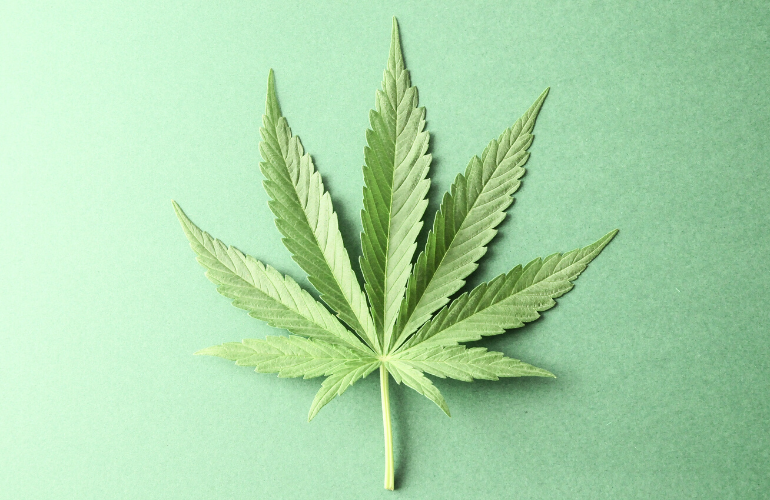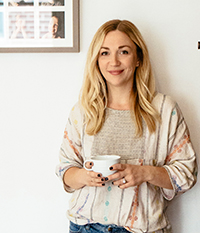By now you have surely heard the buzz — as of Jan. 1, 2020, marijuana is fully legal in Illinois. Joining 11 other states, including Michigan, Oregon, and California, Illinois is primed to capitalize on the weed sales that other states have enjoyed (Colorado recently exceeded $1 billion in marijuana state revenue). It may seem like it will be 4/20 every day, but the legalization of recreational marijuana will not only create jobs for entrepreneurs, farms, and dispensaries, but Illinois has also made plans to allocate funds from sales to impoverished areas in need of programs, drug-related education, a budget stabilization fund, and the state’s general fund.
“A world with legalized, regulated cannabis is a happier, healthier, safer place,” says Jeremy Unruh, Director of Public and Regulatory Affairs at PharmaCann, who operates dispensaries in Arlington Heights, North Aurora, Ottawa, and Romeoville. “Legalizing cannabis helps generate tax revenue, helps quash the black market and helps keep unscrupulous, unregulated operators from producing products that make people sick.”
Whether you are a first timer or not, the rules around legalization, combined with the plethora of product types on the market today, can be overwhelming. We did all of the research for you and spoke with local cannabis experts to share the most important things you should know before you make the trip to your neighborhood dispensary.

Where can you purchase legal marijuana?
Weed may be legal in Illinois on Jan. 1, but there are only a few dispensaries that will be ready for business. Many of these businesses were granted early permits since they were already operating as medicinal dispensaries. The Chicago area will have less than 30 dispensaries ready for Jan. 1, with more permits issued for 2020. While Chicago has legalized recreational sales city-wide, other cities around Chicago are subject to local laws and zoning rules. Suburbs that have voted to allow sales already include Buffalo Grove, Mundelein, Arlington Heights, and Aurora.
If you’re planning a New Year’s Day trip to a dispensary, be prepared for long lines. One dispensary in Lakeview is even selling tickets to be first in line (with proceeds benefitting charities).
What do you need to purchase at a dispensary?
How does one prep for their first dispensary visit? Silvia Orizaba, owner of CBD Sacred and a cannabis advocate, suggests getting educated by “reading about one-on-one cannabis and write down your questions. Cannabis is not for everyone, so don’t be scared to ask questions.”
As long as you are 21 or older, you will just need a valid government-issued I.D. Businesses can turn away anyone for having an expired, damaged, or questionable looking I.D., so make sure yours is in good condition. Businesses can only accept cash or debit cards too, so plan ahead.
View this post on Instagram
How much marijuana can you legally have?
Illinois residents can carry 30 grams, or just over an ounce, of the plant itself (marijuana flower). If you purchase a concentrate, like oil, it can be up to 5 grams and it is up to a half-gram of THC, the chemical compound that creates the high, with infused products like edibles. If this seems confusing, the dispensary will assist you, as they legally cannot sell you more than you are allowed to carry out.
What about out-of-state residents?
Remember, marijuana is illegal on a federal level and still illegal in neighboring Wisconsin, Minnesota, Indiana, and Iowa. So, keep it in Illinois, for now. Non-Illinois residents can purchase and carry half of the amount allowed for Illinois residents, but it is illegal to cross state lines. O’Hare and Midway airports will defer to police if a passenger is found with a large amount of it, but they will not be actively looking for it, they said.
Where can you use marijuana?
Indoors, in non-public places (for now). Chicago Mayor Lori Lightfoot has proposed permits for standalone cigar or hookah lounges to allow marijuana smoke use. Until then, its best to enjoy your weed, in any form, in your own home. If you are caught smoking in public, you could be ticketed for public consumption.
View this post on Instagram
What type of products will be sold?
So many. There are countless variants out there, available from many different brands. There are three major categories that yield different results: inhalants, edibles, and topicals. From vape pens and prerolls to edibles made by local artisans to tinctures, it can be overwhelming. If you are a first timer, or haven’t tried marijuana since your college days, Unruh recommends easing into it. “Start slow, and go slow,” he said. “Try an inhaled product that has an immediate effect so that the first-timer has a chance to learn how his or her body is affected by cannabis.”
The knowledgable staff at your local dispensary will be able to point you in the right direction, depending on what experience you are looking for. Here is a quick reference guide to the most popular types:
Tinctures: One of the oldest methods, tinctures are an alcoholic extract of cannabis. Drops can be applied to the skin or taken orally.
Concentrates: Highly potent and available in many different textures and ratios (vape pens, for example), marijuana concentrates have a greater proportion of cannabinoids when compared to the natural flower. Essentially, this means you will get a quicker high.
Edibles: Available in many tasty alternatives, from candy and chocolate-covered fruit to baked goods, edibles are cannabis-infused food products that provide a delayed but extended high.
Prerolls: Doing the work for you, prerolls are marijuana joints that are already rolled with weed for you, and ready to smoke.
Marijuana Flower: This is the cannabis plant in its purest form, ready for you to do what you will. This could be smoking in a bong or pipe, baking with it at home or creating your own tinctures.
Pills/Tablets: Already found at many medical dispensaries, cannabis pills, or tablets, are filled with cannabis oil or come in dissolvable tablets that you ingest.
What about CBD?
CBD is everywhere in Illinois, from gas stations to coffee shops. As a refresher, CBD does not get you high like the THC chemical found in the same marijuana flower. Many products on the market combine the health benefits of CBD with THC to create unique blends available for sale at only legal dispensaries. This offers a unique opportunity for those seeking the medical benefits of cannabis. Orizaba, a long-time cannabis advocate, is excited to “see the older and younger generations get education about the medical benefits the cannabis plant has, and for consumers to explore other options outside of big Pharma.”
Should you worry about vaping? What about teens?
Many of the THC-involved vaping deaths have been linked to black market vape pens that contain harmful cutting agents like Vitamin E acetate and illicit vaporizer, but the general recommendation currently by the Centers for Disease Control and Prevention is to try to avoid vaping in general, including cannabis. This is especially important to note with teens, where vaping has been popular.
Teens, whose brains are still developing, should steer clear of marijuana. Here’s what you need to know about your teen’s brain on pot.
In summary, remember to take it slow and to be patient
After the Jan. 1 rollout, expect long lines and possible shortages of products. As the Illinois cannabis industry finds their way, which includes new farms, products and dispensaries, there will be an ease. “It may be a bumpy ride, but it will work,” said Unruh. The road to legalizing recreational marijuana in our state has been a long one, and after years of advocating, Unruh is “excited that the hundreds of thousands of people who either have used cannabis and been sanctioned for it, or currently use cannabis from illicit sources will no longer be criminals. That’s important.”
 Macaire Douglas lives in the Chicago suburbs with her husband and two sons. She proudly supports Save Abandoned Babies Foundation, a Chicago-based nonprofit organization that works tirelessly to prevent the illegal abandonment of newborns nationwide. Since its inception in 2000, more than 3,600 newborns have been safely surrendered and adopted into loving homes.
Macaire Douglas lives in the Chicago suburbs with her husband and two sons. She proudly supports Save Abandoned Babies Foundation, a Chicago-based nonprofit organization that works tirelessly to prevent the illegal abandonment of newborns nationwide. Since its inception in 2000, more than 3,600 newborns have been safely surrendered and adopted into loving homes.
